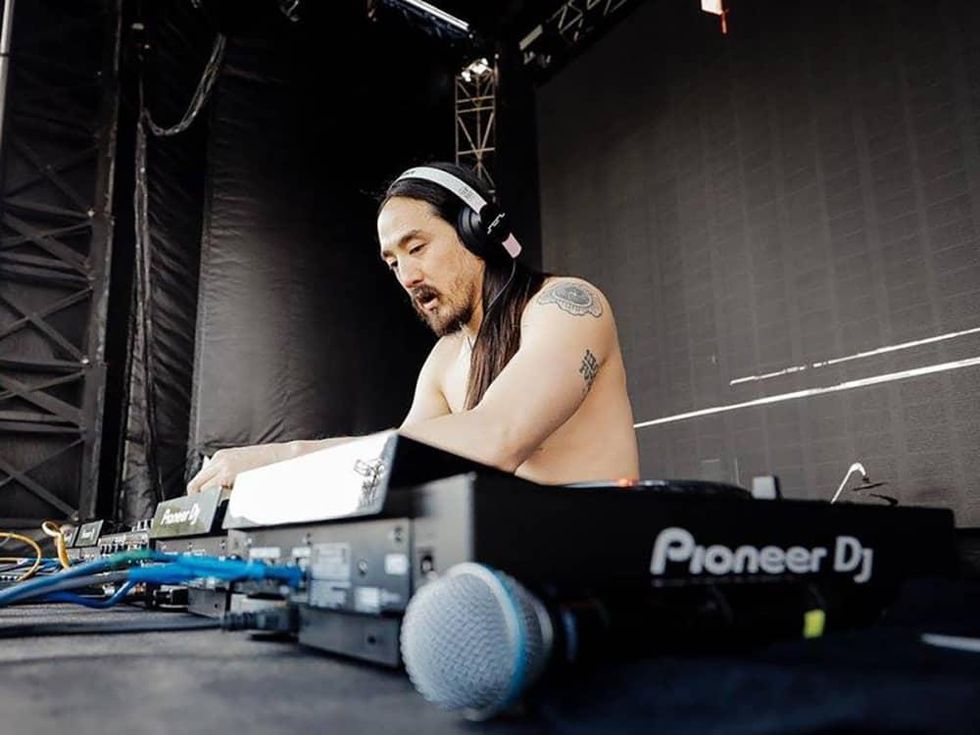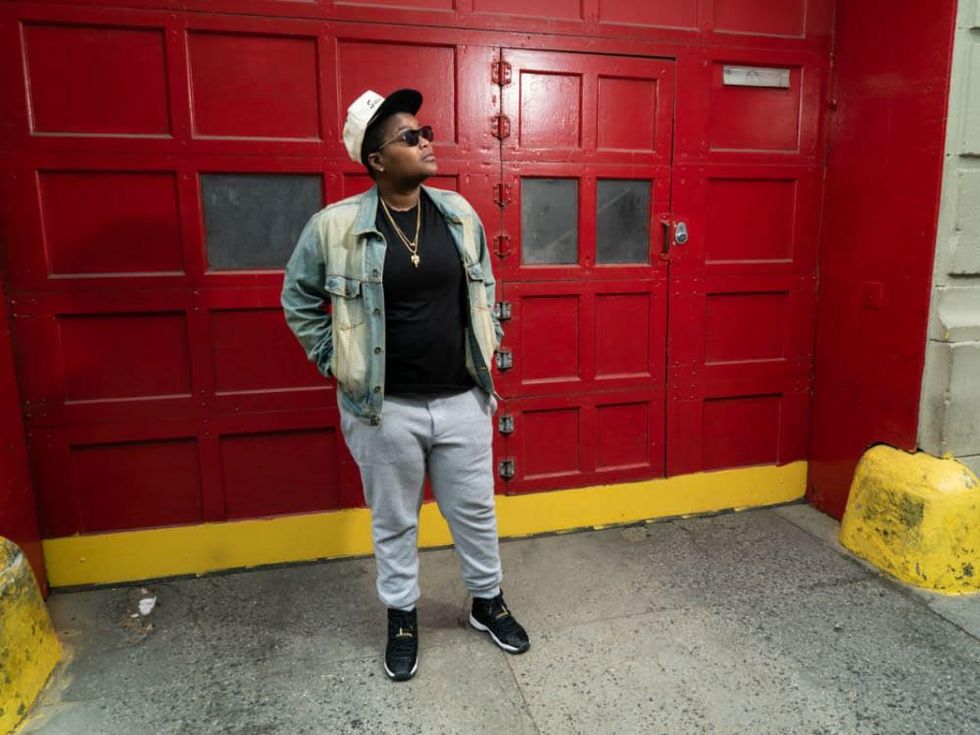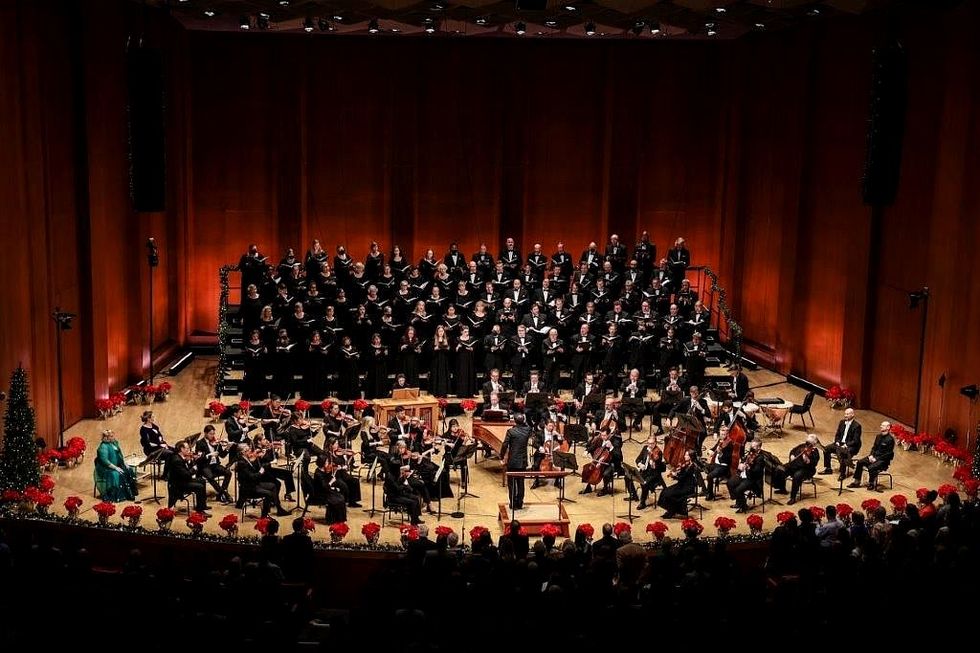Houston's Film Festival
Beyond Keira Knightley and all those naked women: Five underhyped Cinema ArtsFest must-see movies
 The Artist
The Artist Matt O'Leary and Rachael Harris in Natural SelectionNatural Selection/Facebook
Matt O'Leary and Rachael Harris in Natural SelectionNatural Selection/Facebook Wish Me Away documentary still on Chely WrightPhoto by Tanya Braganti
Wish Me Away documentary still on Chely WrightPhoto by Tanya Braganti Upstream
Upstream A scene from Echotone
A scene from Echotone
With the third annual Cinema Arts Festival Houston set to kickoff Wednesday, many H-Town cineastes have nearly completed their must-see lists. But if you’re willing to look beyond the star-studded attractions – Viggo Mortensen and Keira Knightley in David Cronenberg’s A Dangerous Method, Gerard Butler and Vanessa Redgrave in Ralph Fiennes’ Coriolanus, Nearly Naked Women and Completely Naked Women in Frederick Wiseman’s Crazy Horse! — you’ll find at least five slightly less-hyped offerings equally worthy of the price of admission.
1. Wish Me Away (9:45 p.m. Thursday, Edwards Greenway Grand Palace)
Think of it as an archetypical American success story: Chely Wright was a small-town girl (born in Wellsville, Kansas) who managed to fulfill her childhood dreams of making it big as a country music singer-songwriter in Nashville. Unfortunately, as this outstanding documentary recounts, dreams have a nasty habit of turning into nightmares.
Even as she developed a loyal audience, earned accolades (including the Academy of Country Music’s 1995 prize for Top New Female Vocalist), and climbed the charts with popular singles (such as the No. 1 hit “Single White Female”), Wright was tormented by guilt and fear until the day she stopped hiding (and often denying) her sexual orientation.
An inspirational account of coming out, Wish Me Away is fascinating both as a biographical portrait of Wright, the first significant American country music artist to openly identify herself as gay, and as a backstage look at how an entertainer prepares to make a revelation that many might view as career suicide.
2. Echotone (10 p.m. Thursday, River Oaks Theatre)
Documentarian Nathan Christ sympathetically celebrates struggling indie musicians in Austin — while simultaneously warning that the gentrification of neighborhoods long dominated by live music venues may imperil the city’s creative class.
As Echotone duly notes, in the self-proclaimed “Live Music Capital of the World,” 70 percent of working musicians make less than $15,000 a year.
The film’s a bit too long, and a tad unwieldy, but simpatico audiences doubtless will appreciate Christ’s portraits of Austin musicians who want to concentrate on art, not commerce, and make a living while remaining independent. Cari Palazzollo of the synth-pop group Belaire goes as far as manufacturing her own CD packaging and souvenir T-shirts, while blues artist Joe Black (of Black Joe Lewis and the Honeybears) drives a delivery truck for a fish market to support his budding career.
“We’re not into mass distribution or anything like that,” the elfin Palazzollo insists. “We don’t want to get our name out there. We want people to come to us and find us.”
Unfortunately, as Echotone duly notes, in the self-proclaimed “Live Music Capital of the World,” 70 percent of working musicians make less than $15,000 a year.
3. The Artist (6:50 p.m. Saturday, Edwards Greenway Grand Palace)
The year is 1927, and everything is about to change — and not all for the better — in the art and business of moving pictures. George Valentin (Jean Dujardin) has established himself in Hollywood as an Errol Flynn-style superstar, and refuses to believe that the dawn of talking pictures will eclipse his career.
“I'm the one people come to see,” he claims. “They never needed to hear me." He is, of course, sadly mistaken.
French filmmaker Michel Hazanavicius reunites with Dujardin, star of his popular OSS 117 spy movie spoofs, for a sentimental dramedy that aims to introduce today’s moviegoers to yesterday’s cinematic style.
As Hazanavicus told IndieWire.com: “I wanted to do something larger than an homage to the silent era, I wanted to evocate all the old, classical Hollywood movies. That’s why there’s so many references to Citizen Kane, Sunset Boulevard, a lot movies from the ‘20s to the ‘50s. I wasn’t married to staying in the period. Like in the scene where [Valentin] first hears sound, there’s a light that was used not in the ‘20s but in the ‘50s.
“What I really wanted to do was tell my own story. If something helps me to tell it, I’ll use it. I really wanted to do a mainstream movie in black and white. You see a lot of experimental ones like that, it’s no problem, but I didn’t want to do that. My daughter asked me once if the world was black and white when I was born.
"So they really don’t know…But I wanted to show that experience. It’s very special and very specific to those movies that are now gone. Nobody watches silent movies anymore.”
Well, maybe. And, then again, maybe not.
4. Upstream (1 p.m. Sunday, Museum of Fine Arts, Houston)
No other director has ever matched John Ford’s Oscar tally — four golden statuettes for dramas, two more for documentaries — and few others have had more influence on films made by other filmmakers. (Orson Welles famously claimed to have to watched and studied Ford’s Stagecoach more than a dozen times while prepping to direct Citizen Kane.)
But even the most devoted admirers of Ford’s oeuvre (The Informer, The Searchers, How Green Was My Valley, My Darling Clementine and on and on and on) may be pleasantly surprised by Upstream, a charming 1927 comedy — yes, that’s right, a John Ford comedy — long thought to have been lost before a print was discovered last year in the New Zealand Film Archive.
As Susan King of The Los Angeles Times reported after the film’s “re-premiere” at the Academy of Motion Picture Arts and Sciences' Samuel Goldwyn Theater, Upstream is “set in a New York boarding house for actors. The action revolves around a love triangle between a ham actor (Earle Foxe, channeling his inner John Barrymore), the youngest and least talented member of a famed acting family; a young, cute member of a knife-throwing act (Nancy Nash); and the knife-thrower (Grant Withers). She adores the actor; the knife-thrower adores her.”
H-Town audiences will have chance to fall in love with Upstream when CAFH presents it with live musical accompaniment by the Donald Sosin Ensemble.
5. Natural Selection (4 p.m. Sunday, Edwards Greenway Grand Palace)
Winner of both the jury and audience awards for best feature at the 2011 South by Southwest Film Festival, Jersey Village native Jeffrey Pickering’s engaging dramedy is a richly amusing and stealthily affecting road movie that details a journey of self-discovery. Linda White (Rachel Harris), a fortysomething, devoutly Christian housewife, is caught in a conjugal Catch 22: Because she was diagnosed years ago as barren, her husband Abe (John Diehl) — who’s even more devout, if not downright fanatical, in his religious beliefs — always has refused to have marital relations with her.
His reasoning: Fornication without the possibility of impregnation is a sin.
Given Abe’s deeply held convictions, Linda is deeply shocked — and more than a mite angry — when she discovers, shortly after he suffers a debilitating stroke, that he’s been making regular donations to a sperm bank for more than 20 years, and that he suffered his stroke during the course of his most recent — wink-wink, nudge-nudge — deposit.
Even so, Linda remains a dutiful wife, and figures that, hey, if Abe truly is knocking on heaven’s door, he should see some return on his investment. So she drives off to Tampa, hoping to track down one of Abe’s biological offspring. What she’s hoping for is a miracle. What she gets is Raymond (Matt O’Leary), a grimy, cranky, mullet-coiffed ne’er-do-well who looks and sounds like a bit player from Cops.
Raymond reluctantly agrees to accompany Linda back to Jersey Village — but only because he’s being hunted by cops after his recent and entirely unauthorized departure from prison. As they travel, of course, complications arise.





